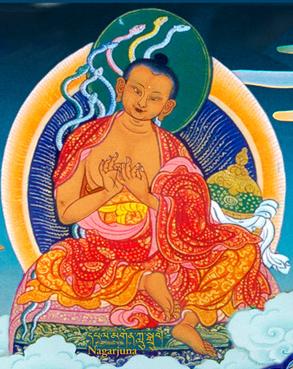
XXI.1.
There is no origination either with disappearance or without it.
XXI.2.
How could there be death without birth?
There is no disappearance without prior origination.
XXI.3.
Since, surely, death does not exist at the same moment as birth.
XXI.4.
For, impermanence does not fail to be found in existent things ever.
XXI.5.
Since, surely, death does not exist at the same moment as birth.
XXI.6.
No proof exists of those two things.
How can these two things be proved?
XXI.7.
There is no disappearance of that which is destructible nor of that which is non-destructible.
XXI.8.
Without origination and disappearance an existent thing does not exist.
XXI.9.
Origination and disappearance does not obtain for that which is non-empty.
XXI.10.
It does not obtain that origination and disappearance are different.
XXI.11.
Therefore it would exist for you.
But origination and disappearance are seen due to a delusion.
XXI.12.
and an existent thing does not originate from a non-existent thing.
Also, a non-existent thing does not originate from another non-existent thing;
and a non-existent thing does not originate from an existent thing.
XXI.13.
Or by itself and something different at the same time. How, then, can it be produced?
XXI.14.
For that existent thing would be either eternal or liable to cessation.
XXI.15.
For someone assuming an existent thing, there is not only Eternalism or nihilism,
Since this is existence: namely, the continuity of the originating and stopping of causes and product.
XXI.16.
If this is existence: namely, the continuity of originating and stopping of causes and product,
It would logically follow that the cause is destroyed because the destroyed thing does not originate again.
XXI.17.
At the time of nirvana there is destruction of the cycle of existence (bhavasamtana) as a result of the cessation.
XXI.18.
If the last part of existence is not destroyed, the first part of existence does not obtain.
XXI.19.
There would be one thing being destroyed and being produced both at the same time.
XXI.20.
Can someone be produced in those “groups of universal elements” (skandhas) in which he is also “dying”?
XXI.21.
And if it does not exist in the three times, how can the chain of existences exist?
Source: Orientalia




